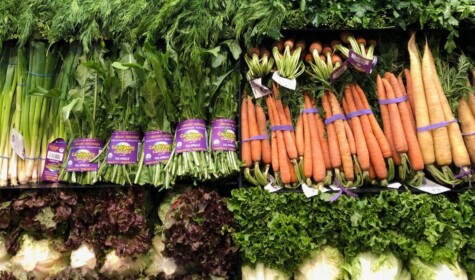It seems hard to comprehend, living as we do in the twenty first century, that food security would ever be something we would need to concern ourselves with. But it’s a thing now. It’s a sign of the times when a cargo ship full of grain sailing across the Black Sea becomes a major international news story. And you’d better believe that this is just the tip of the iceberg; the impact of war, as terrible as that is, is nothing compared to the effect that climate change is going to have in terms of our food security.
One thing that we really must be doing, both in terms of preventing the worst-case scenario of climate change and also helping us cope with the inevitable food security troubles we will face in the future, is to create resilient local food economies. And for qualification of that statement, should it be required, simply cast your mind back to the lockdown in March 2020 and remember how local food enterprises up and down the country not only continued to supply their customers, but quickly scaled up to meet the surge in demand, while supermarket shelves were bare for weeks.
Such local food economies would be characterised by an abundance of independent food enterprises: farmers and market gardeners who grow food specially for the local market, artisanal processing businesses who lovingly add value to locally grown food, and independent shops and restaurants which sell local food. And more to the point, when a local food system has taken root, it is possible to coordinate the supply-chain between these local enterprises according to ‘circular economy’ principles, and dramatically reduce the environmental impact of food in comparison to the industrialised system currently in place.
…click on the above link to read the rest…
